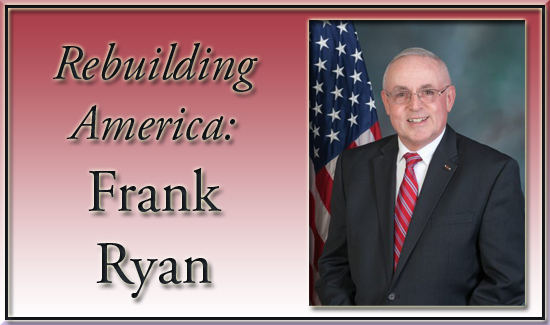Minimum Wage: ‘Feel Good,’ but Harmful

Cries of increasing the minimum wage to $15.00 per hour are emanating from virtually every Democratic candidate in the 2020 election cycle. Not to be outdone, Seattle’s minimum wage increased on January 1, 2019 to $16 per hour for large employers; $15 per hour for employers with less than 500 employees and $12 per hour for all other employers.
The emotions on the issue run deep. The impact of the decisions in the minimum wage debate will be felt by the most vulnerable for generations to come.
The argument advocated predominately to raise the minimum wage relate to the argument that one cannot live on the current minimum of $7.25 an hour.
Few believe that one can live on $7.25 an hour but the logical consequence of the “cost of living” argument translates into an argument that one’s living costs are somehow the employer’s responsibility. The argument defies economic logic and reality.
If an employer is responsible for giving a “living wage” perhaps the minimum wage should be redefined as the personal budget you provide your employer annually which the employer must cover. Every employee would be paid according to their personal cost of living. Virtually everyone would recognize this idea as ludicrous and not economically sustainable but then so is the cost of living argument supporting requests to hike the minimum wage.
If you have ever been poor, and I have, you quickly appreciate the allure of raising your pay. What a way to get out of financial problems comes to mind first. Then reality sets in and this reality is harshest for the most vulnerable.
During a run for the Pennsylvania state legislature to which I was elected, I was asked by a very dear friend after Mass to answer two questions. The first question was “Do you support raising the minimum wage?” and the second question was “If you do not support raising the minimum wage, would you feel the same way if that is what you were earning?”
I indicated that I did not support raising the minimum wage and that my reasons for not supporting the minimum wage were numerous.
The “feel good” aspect of minimum wage is almost irresistible but at the same time the public policy aspect of it can be unbelievably damaging to the very people you are attempting to help.
It was obvious that the economics of how employers make employment decisions was not clear to the public in general. The marketplace determines minimum wage, not the government.
Governments can dictate a minimum wage, but the marketplace will determine whether it will be paid.
The basic building block of whether any wages can be paid to anyone is dependent upon whether the customer is willing to pay it. The customer ultimately determines how much anyone can be paid.
Once past the customer decision, the marketplace, whether you believe in the free market or not, will determine whether the pay scale you offer is sustainable. “Black Markets” flourish when governments attempt to assert their will over the will of the marketplace.
Many of the unintended consequences of minimum wage legislation can be destructive to both the employee and the community.
For instance, an increase in the minimum wage may cause an employer to determine if the employee’s value is worth the cost. If what you are paid is not offset by the value to the customer of what you are doing, your job will go away.
On a larger scale, minimum wage also significantly adversely affects rural communities over urban communities. Quite simply, $15 per hour in a rural area is significantly different than $15 per hour in Philadelphia or New York.
Attempting to establish a national standard penalizes lower-cost communities such as rural communities compared to their urban counterparts. In effect, minimum wage legislation harms employees and employers in less populated areas even though their cost of living is significantly less.
Minimum-wage legislation is also tremendously discriminatory to younger workers. It increases the cost to a prospective employer to hire someone with little to no experience such that the employer is significantly less willing to risk hiring a person with little to no experience. Labor force participation for those from age 16 to 19 has dropped from 52.7% in 1994 to 34% in 2014. The consequences of this dramatic reduction will be felt in the workforce and in their lives for decades to come.
Many employers that I deal with lament the fact that younger people who have not had the benefit of working part-time jobs while in high school are coming into the workforce with little to no job skills making them almost unemployable by the time they are in their mid-20’s. An entry-level job is designed to give experience not just income.
The net result is that many employers are now offering unpaid “internships” to prospective employees rather than paying jobs because of minimum-wage legislation which increases cost with little apparent increase in value.
The danger with feel-good legislation is that it does not feel good when it backfires.
The greatest gift we can give to a new worker is to give them skills that will last them a lifetime not just a paycheck that will last a weekend.
Frank Ryan, CPA, USMCR (Ret) represents the 101st District in the PA House of Representatives. He is a retired Marine Reserve Colonel, a CPA and specializes in corporate restructuring. He has served on numerous boards of publicly traded and non-profit organizations. He can be reached at [email protected].






